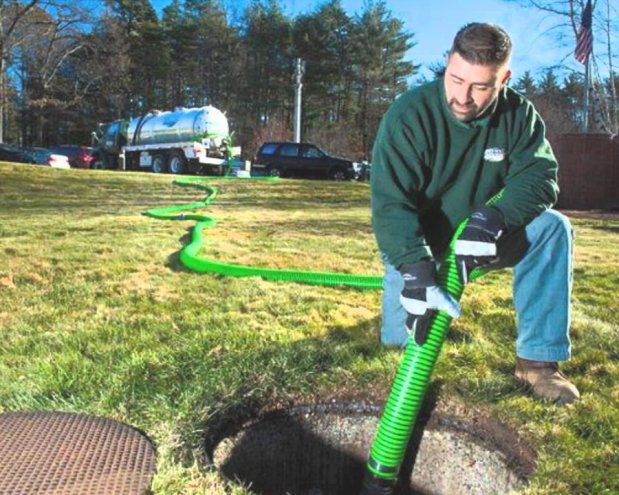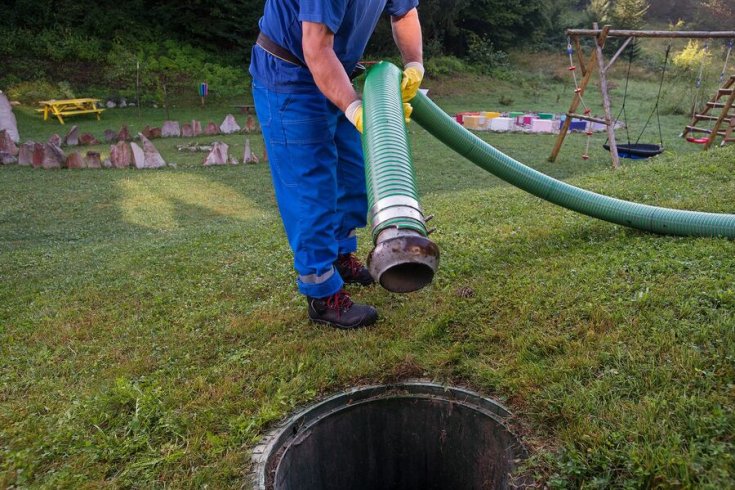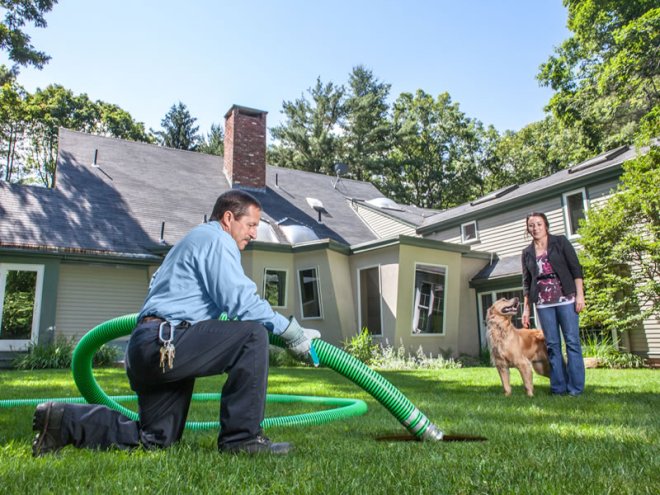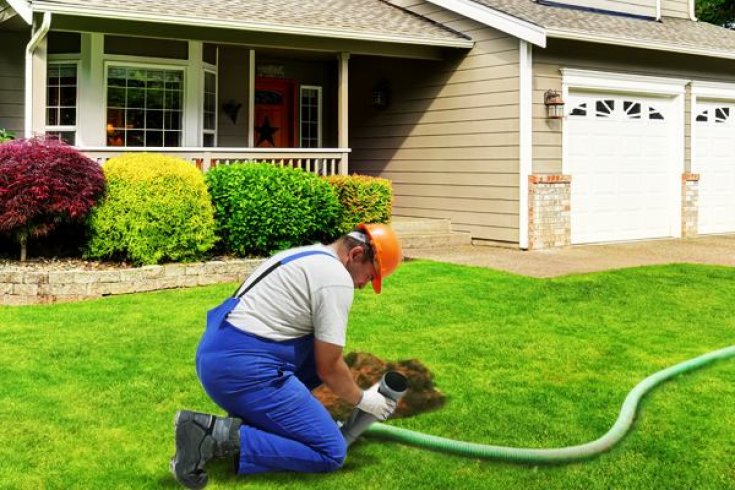.jpg)
02
In recent years, social media platforms like TikTok, Instagram, and YouTube have become hotspots for viral cleaning hacks. From DIY drain bombs to the excessive use of antibacterial cleaners, these trends promise sparkling clean homes with minimal effort. But while they might leave your sinks and toilets looking pristine, they could be silently damaging one of your home’s most essential but often overlooked systems: your septic system.
If your home relies on a septic tank, it’s crucial to understand how these popular cleaning trends might impact its health—and why proper septic tank pumping, septic tank cleaning, and even septic tank installation could be affected by what you pour down your drains.
Before diving into how cleaning trends can hurt your system, it’s important to understand how a septic system functions. Wastewater from your home flows into the septic tank, where solids settle at the bottom, forming sludge, and oils rise to the top, forming scum. The relatively clear water in the middle layer then flows out to the drain field, where it is further filtered by the soil.
Septic tanks rely heavily on natural bacteria to break down waste. Disrupting this bacterial balance can lead to clogs, backups, or system failure—issues that can be costly and hazardous to your health and the environment.
Many viral cleaning hacks promote heavy use of bleach and antibacterial cleaners. While these products kill germs in your kitchen and bathroom, they also kill the beneficial bacteria in your septic tank that are essential for breaking down waste. This disruption can prevent your tank from functioning properly and increase the frequency of septic tank pumping and cleaning.
DIY drain bombs made from baking soda, vinegar, and essential oils are popular for freshening drains. While they seem harmless, frequent use can alter the pH level in your septic tank and kill off beneficial bacteria. Some variations include harsh chemicals that can corrode pipes or cause sludge buildup.
Just because a product is labeled “natural” doesn’t mean it’s safe for your septic system. Some social media influencers recommend pouring boiling water, lemon juice, or large quantities of vinegar down your drains. When done excessively, these can throw off the chemical balance in your tank or contribute to grease and scum buildup.
Trendy hacks may make your bathroom smell fresh, but they’re no substitute for proper septic system maintenance. Routine septic tank pumping—typically every 3 to 5 years—is essential to remove sludge and prevent overflow or backups. Regular septic tank cleaning ensures the tank and drain field stay in optimal condition, allowing waste to break down properly and flow smoothly.
If you’re experiencing recurring septic issues, such as slow drains or foul odors, it might be time to consult a professional from Charlotte Septic Pros. In some cases, repeated misuse of the system could lead to the need for a septic tank installation if your current tank is beyond repair.
Instead of relying on internet fads, opt for septic-safe cleaning products that are biodegradable and free of harsh chemicals. Avoid flushing anything other than human waste and toilet paper. Minimize water use during peak times to reduce stress on the system, and schedule regular inspections with a licensed septic service provider.
While it’s fun to try out the latest cleaning trend on social media, your septic system isn’t the place to experiment. Ignoring the impact of these hacks could lead to costly repairs, system replacements, and environmental damage. Always prioritize septic-safe practices and schedule regular septic tank pumping, septic tank cleaning, and professional advice when needed. Your home—and your wallet—will thank you.

21
Simple Habits That Protect Your Septic System A well-functioning septic system does its job quietly, but the moment something goes…
Read more
14
Pump Now or Pay Later: The Real Cost of Skipping Maintenance A properly functioning septic system is easy to forget…
Read more
11
Why Your Septic System Always Acts Up at the Worst Time Homeowners often feel that septic problems strike at the…
Read more
04
Early Warning Signs Your Septic Tank Needs Pumping For homeowners who rely on a septic system, routine maintenance is not…
Read more
29
Why Does My Septic System Smell Fine One Day and Terrible the Next? If you own a home with a…
Read more
19
Is Your Septic System Overdue? Simple Home Checks You Can Do Today For many homeowners, the septic system is a…
Read more
13
5 Signs Your Septic Tank Is Overdue for Pumping Your septic system works quietly behind the scenes, managing wastewater from…
Read more
07
Do Septic Additives Really Work? Septic additives are everywhere. You’ll see them at hardware stores, advertised online, and often recommended…
Read more
29
5 Things You’re Doing Every Day That Fill Up Your Septic Tank Faster Your septic system works quietly in the…
Read more
21
Is It Normal for Grass to Grow Greener Over My Septic Tank? If you’ve noticed a patch of grass in…
Read more